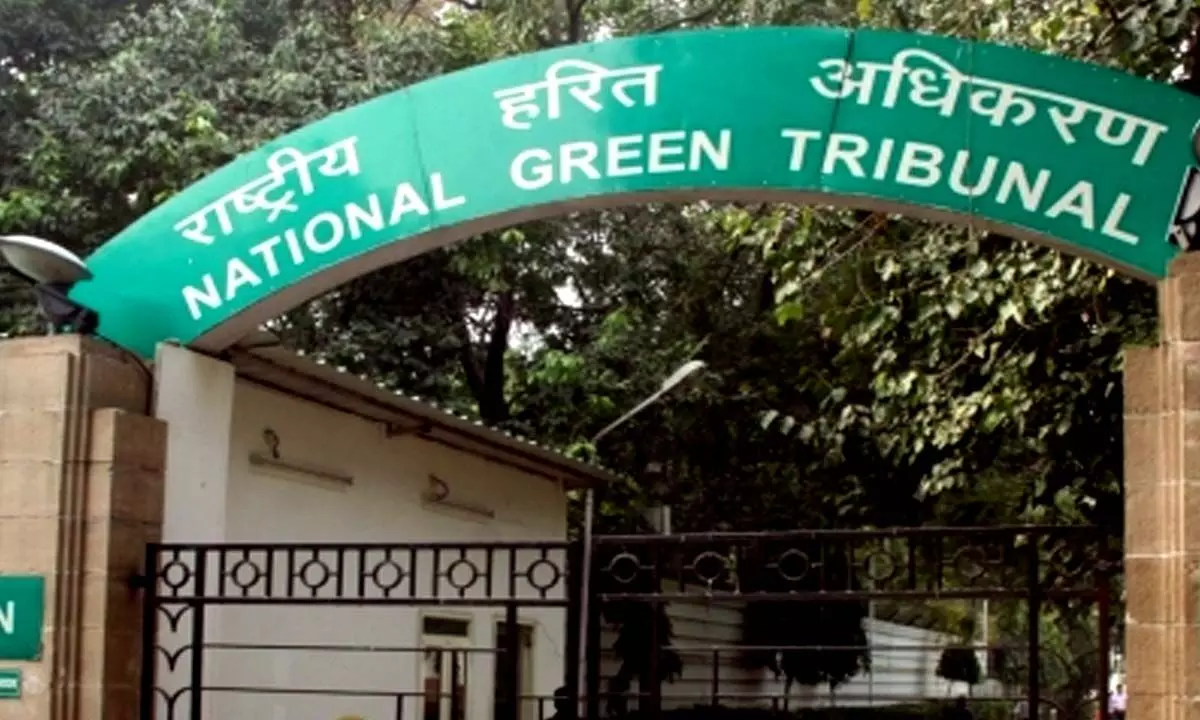Live
- Kerala LoP Satheesan urges CM Vijayan to pass resolution against draft UGC regulations
- Human Trafficking Awareness Day 2025: History, Significance, and Theme
- Hrithik Roshan reflects on legacy and inspiration
- Dhivyabharathi promises an unforgettable experience with ‘Kingston’
- India remains a bright spot in global GDP growth trajectory: Economists
- Director Kiruthiga Udhayanidhi encourages actors to embrace bold roles
- ‘Fateh’ review: Feast to action lovers
- Samantha overcomes health setbacks; shares updates on social media
- Kejriwal swindled Rs 2,026 cr through liquor scam, shows CAG report
- Angola reports 119 cholera cases, including 12 deaths
Just In
KSPCB recommends ₹11.68 Crore fine for environmental violations by drug manufacturing company


National Green Tribunal
New Delhi: The Karnataka State Pollution Control Board (KSPCB) has recommended imposing a fine of ₹11.68 crore on Resonance laboratory, a drug...
New Delhi: The Karnataka State Pollution Control Board (KSPCB) has recommended imposing a fine of ₹11.68 crore on Resonance laboratory, a drug manufacturing company situated in the Doddaballapur KIADB Industrial Area, for its violation of environmental regulations.
The company has been operating a significant pharmaceutical manufacturing plant without obtaining the necessary environmental clearance for an extended period. Environmental clearance was eventually obtained from the Karnataka State Environmental Impact Assessment Authority in August 2020 under the Violation Section. However, this clearance was granted irregularly, prompting concerns about its validity.
The case came under scrutiny by the South Zone Bench of the National Green Tribunal (NGT), where S.K. Vijayakumar accused the authority of not having the jurisdiction to grant environmental clearance, especially without addressing compensation for past violations and associated fines.
In response to these concerns, the bench issued an order on February 1 of this year, stating that the authority had determined the environmental damage based on the Kyoto Protocol. The assessment, however, did not adhere to the guidelines set by the Central Pollution Control Board and State Pollution Control Board, which raised questions about its accuracy and fairness.
Consequently, the NGT directed the Pollution Control Board to reassess the environmental damage in alignment with the established guidelines of the Central or State Pollution Control Board. Rajasekhara S., the environment officer of the Board, submitted a report to the bench on Friday, seeking consideration and the issuance of further orders. The final hearing for the case has been scheduled for September 25.
The calculation of environmental damage has been performed according to the provisions of the Kyoto Protocol. The company, in its report to the authority, estimated the penalty to be ₹7.63 lakh. However, the report also highlighted a gap in the pollution control board guidelines, which lacks a specific formula for calculating or assessing environmental damage concerning financial gain or advertisements resulting from environmental violations.
The company in question falls under the red category as per the pollution control board classification. Operating since February 8, 2012, it obtained environmental clearance on August 24, 2020. Remarkably, the company conducted operations for 3,117 days without having the required environmental clearance in place. With a project cost ranging between ₹10 crore to ₹25 crore, the magnitude of the company's operations and impact on the environment is considerable. Located in an area with a population of less than 50 lakhs, the pollution control board's guidelines indicate an environmental compensation of ₹11.68 crore, factoring in these various aspects

© 2025 Hyderabad Media House Limited/The Hans India. All rights reserved. Powered by hocalwire.com






